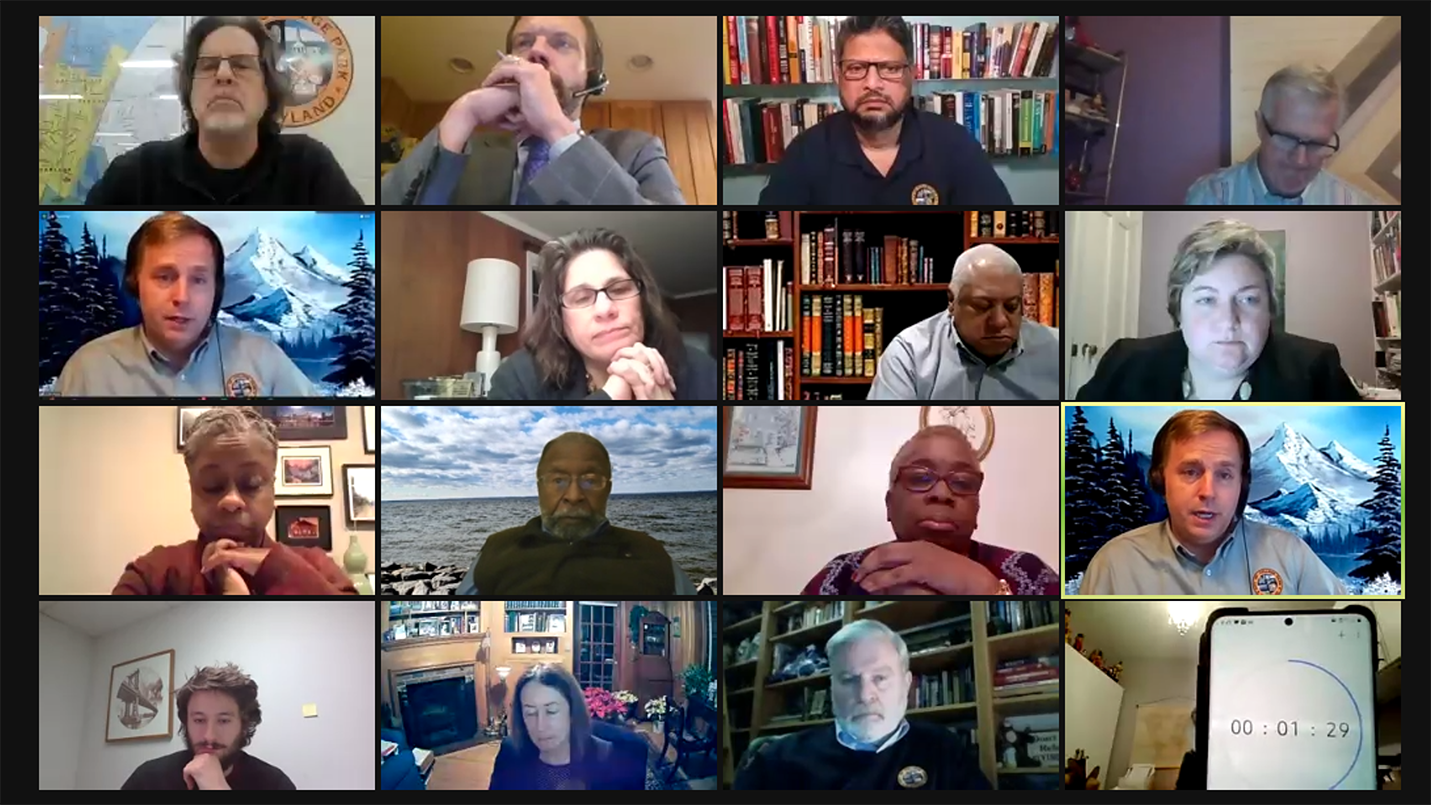Violators of the city of College Park’s nuisance ordinance can now be penalized without warning in the case of an emergency, after the city council unanimously passed an amendment to the ordinance Tuesday night.
The amendment applies to “emergency situations” or when the city is under a state of emergency, which is currently in place due to the coronavirus pandemic, city attorney Suellen Ferguson said. Previously, a warning was given for any nuisance violations.
The amendment allows code enforcers to issue citations immediately if they witness a violation during an emergency situation, defined as “whatever is dangerous to life or health,” according to city documents. Recently, the ordinance has penalized people for participating in large gatherings during the pandemic, said Bob Ryan, the director of the city’s public services department.
The city used warnings to encourage resident compliance with the city code. However, city employees decided that issuing a prior notice would impede solving an immediate emergency.
While the council unanimously passed the amendment, Adam Rosenbaum, the University of Maryland’s student liaison to the council, had some reservations. The amendment’s language was vague, Rosenbaum said, and he wanted clarification on the differences between an emergency occurrence and something prohibited due to a state of emergency.
Two examples of emergency occurrences would include an individual releasing hazardous materials on property and an individual appearing naked on property for others to see — the latter of which has happened before, Ferguson said.
But Rosenbaum was concerned about code enforcement officers making subjective decisions as to what hazardous activity would be, and he worried about it being abused after the pandemic ends.
[To discourage social gatherings, College Park Council votes to increase fines to $1,000]
Student Government Association President Dan Alpert shared Rosenbaum’s concerns. He took issue with enforcers’ role in determining what constitutes an emergency occurrence, especially in a situation that could lead to discrimination based on biases.
“When we allow for [an emergency occurrence] to be up to the individual and have subjective decisions on what that is, that opens up the door for … biases to be present,” Alpert said.
But Ferguson explained that if a situation isn’t outlined in the city code, enforcement officers would use the general definition of an emergency occurrence, within reason — language Rosenbaum believed was too vague.
“Your assumption that any code officer could interpret this any way that they wanted to is not how the law is applied,” Ferguson said.
She also emphasized the purpose of the amendment is to determine whether someone gets a warning before a citation, not whether someone will be cited for certain activities.
But Alpert and Rosenbaum’s concerns sparked conversation among the council. Although Ryan didn’t believe the amendment would be misused, he said he had a personal interest in making sure that his code officers don’t abuse the vagueness of the phrasing.
District 1 council member Fazlul Kabir supported Ryan in his statement, saying Ryan has swiftly handled any complaints with code enforcement in the past.
Kabir urged residents to report any information of code abuse so it could be handled and avoided in the future.
“Let’s have some confidence in our entire code enforcement department. They’re doing their job as [best] they can do,” Kabir said.
[CP Council debates county fee on planned Knox Road student apartments]



